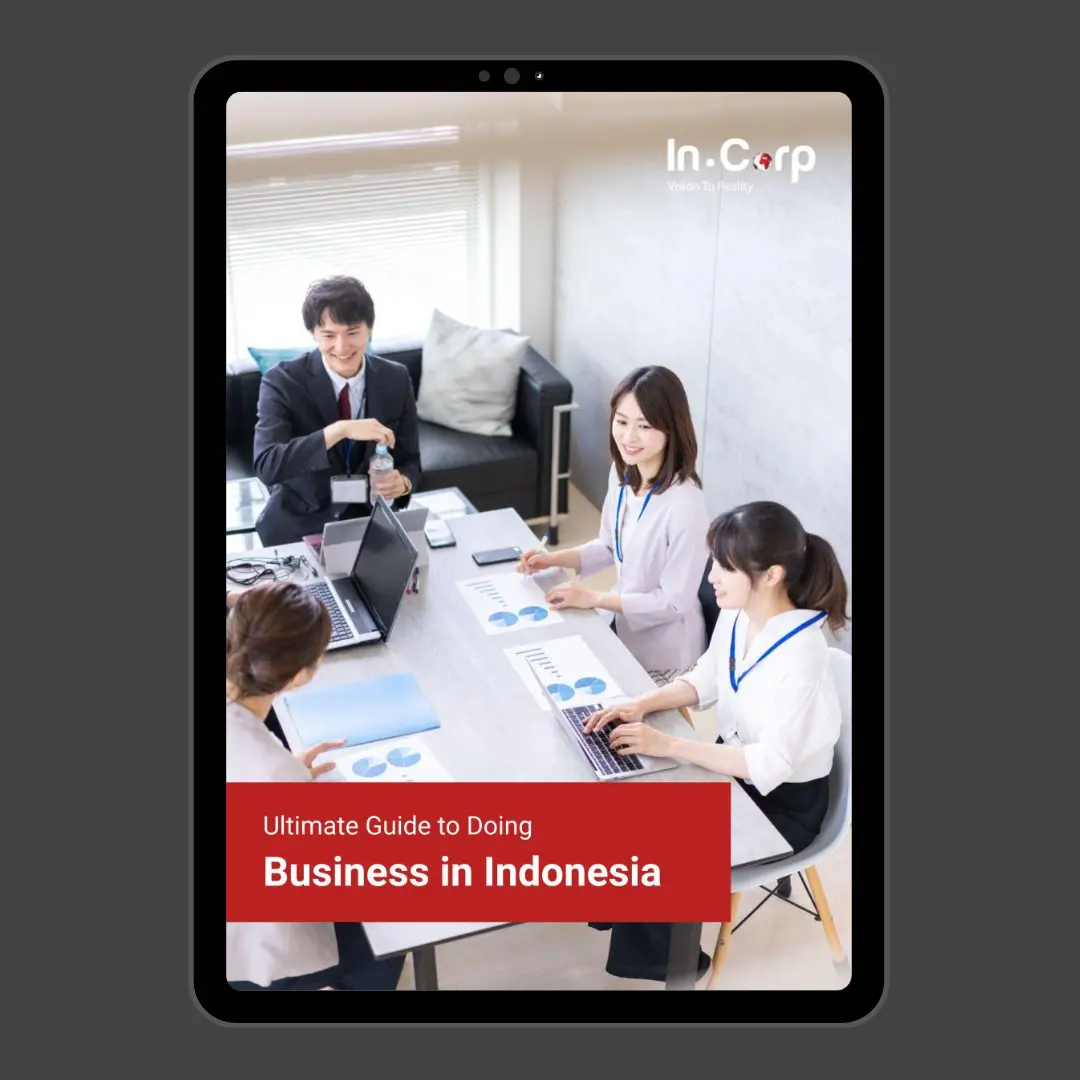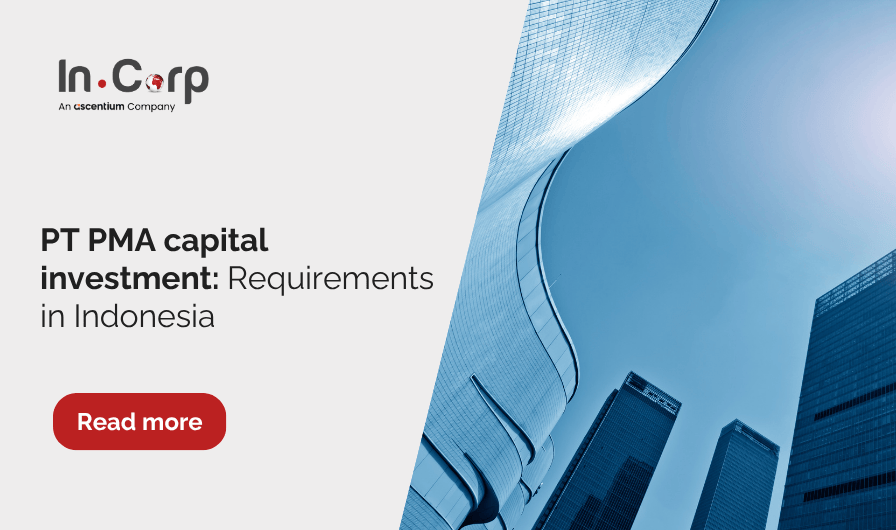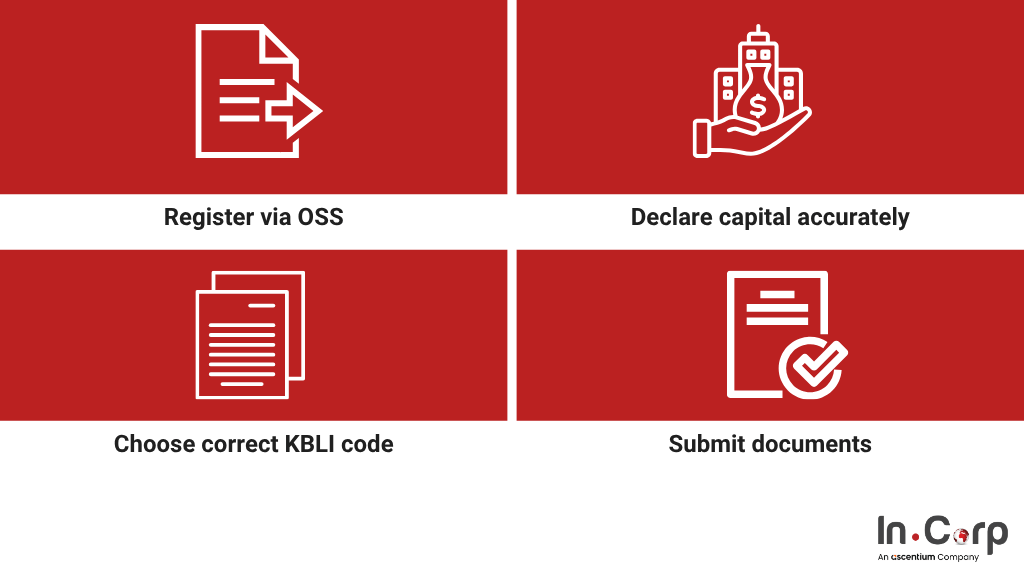Establishing a business in Indonesia as a foreign investor typically involves forming a PT PMA (foreign-owned limited liability company). However, complying with Indonesia’s capital investment regulations is one of the biggest challenges.
Many investors struggle to determine how much capital is required, how to structure it correctly, and how to satisfy the government’s documentation standards. Missteps in this process can delay or even derail a business registration.
What is PT PMA and paid-up capital in Indonesia?
A PT PMA (Penanaman Modal Asing) is a legal entity that allows foreign ownership under Indonesian law. To be recognized and operate legally, it must meet minimum capital investment requirements set by the Investment Coordinating Board (BKPM) and processed through the Online Single Submission (OSS) system.
Paid-up capital refers to the actual funds (or in-kind assets) deposited by shareholders into the company’s corporate bank account. Under the Minister of Investment Regulation No. 5 of 2025, the minimum paid-up capital required at incorporation is IDR 2.5 billion — replacing the old IDR 10 billion rule.
This amount must be verifiable through financial statements or a capital statement letter and serves as the starting equity for operations.
What is the minimum capital investment requirement for a PT PMA?
As of 2025, the Indonesian Investment Coordinating Board (BKPM) and Government Regulation No. 28 of 2025 stipulate the following capital structure for foreign-owned companies:
| Capital Component | Requirement | Description |
| Paid-Up Capital | ≥ IDR 2.5 billion | Minimum amount injected at incorporation |
| Total Investment Plan | > IDR 10 billion | Applies per 5-digit KBLI and location; excludes land & buildings |
| Authorized Capital | Typically, IDR 10 billion | Usually matches the overall investment plan |
Key points:
- The paid-up capital must be fully documented at incorporation.
- The total investment plan (> IDR 10 billion) must be realized progressively within 3 years.
- Land and buildings are excluded from both paid-up and total investment amounts.
- Some capital-intensive sectors (finance, mining, manufacturing) may require higher thresholds.
These requirements ensure foreign investors have sufficient financial capacity to operate responsibly in Indonesia.
Read more: Exploring PT PMA in Indonesia: How to establish a foreign-owned company
Minimum capital investment requirements: Are there exceptions?
While the IDR 10 billion rule applies broadly, certain exceptions exist:
- Representative offices are not required to meet paid-up capital requirements.
- Startups and R&D companies in priority sectors may be eligible for special considerations.
- Special Economic Zones (SEZs) might offer relaxed capital rules depending on the region and business activity.
Verifying your specific KBLI classification is essential to confirm if any exceptions apply.
Forms of injecting paid-up capital
Your capital injection can take several legal forms, provided it is well-documented:
- Cash deposits into an Indonesian corporate bank account
- Machinery or equipment used in operations
- Technology or software (if valued and audited correctly)
Ownership documents and valuation reports must back non-cash contributions to satisfy OSS requirements.
Paid-up capital vs. total investment: What’s the difference?
Understanding the difference between paid-up capital and total investment is crucial for meeting Indonesia’s business setup requirements. This knowledge will help you demonstrate your business’s legal approval, long-term viability, and operational readiness.
- Paid-up capital: The amount shareholders must deposit into the company’s Indonesian bank account. It must be documented and verifiable.
- Total investment plan: This includes not only the paid-up capital but also additional funds allocated for operational costs—such as equipment, salaries, inventory, and other setup expenses. However, in most cases, land and building values are excluded from the investment calculation.
Authorities assess both components. While paid-up capital is essential for legal approval, the total investment plan demonstrates long-term viability and operational readiness.
How to register PT PMA legally
To register a PT PMA successfully, the general steps include:
- OSS registration:
- Accurate capital declaration
- Correct KBLI code
- Required documents:
- Notarized company deed
- Shareholder ID and structure
- Bank statement or auditor’s report
- Capital statement and business plan
Due to variations by sector and risk category, engaging a licensed consultant is highly recommended.
How to structure your capital investment
To meet Indonesia’s capital investment requirements, your structure must be transparent, verifiable, and aligned with OSS regulations. Key steps include:
- Plan total investment: Include paid-up capital, equipment, and working capital.
- Use eligible capital forms: Capital can include cash, machinery, or assets—if properly valued and documented.
- Deposit funds into a local bank account: Open an Indonesian corporate account and deposit the full capital amount.
- Prepare required documents: Collect shareholder declarations, a capital statement letter, and proof of asset contributions, if any.
Seeking professional guidance is crucial in aligning your capital investment structure with legal and sector-specific standards. A licensed consultant can help you avoid delays and ensure smooth approval during registration.
Proper structuring is a key factor in meeting Indonesia’s capital investment requirements. It helps you avoid delays and ensures smooth approval during registration.
What is Indonesia’s legal basis for Foreign Direct Investment (FDI)?
The legal foundation for foreign investment is under Law No. 25 of 2007 on Investment and its implementing regulations by BKPM and OSS. These laws outline:
- Investor rights and obligations
- Minimum capital requirements
- Legal structures allowed for foreign businesses
Understanding these laws ensures your PT PMA setup complies with national investment policy and avoids legal complications.
How KBLI classification affects capital requirements
Indonesia uses a standardized business activity code called KBLI (Klasifikasi Baku Lapangan Usaha Indonesia). Each KBLI code:
- Determines your business classification
- Influences minimum capital requirements
- Affects licensing conditions and risk assessment under OSS
Selecting the correct KBLI code is essential for smooth registration and legal clarity.
Can startups qualify for reduced capital in Indonesia?
Some technology startups and innovation-driven enterprises in priority sectors may be eligible for adjusted capital requirements or incentives. This offers startups a promising opportunity to establish themselves in Indonesia’s vibrant business landscape.
Eligibility depends on:
- Business model and KBLI classification
- Government incentives in specific sectors or regions
- Registration within startup incubators or SEZs
However, these are not blanket exemptions. Always verify with a qualified consultant before proceeding.
Guide to Doing Business in Jakarta

Launch your business in Indonesia with InCorp
Meeting the minimum capital investment requirements for a PT PMA in Indonesia is a strategic foundation for long-term business success. InCorp Indonesia (an Ascentium Company) provides full-service assistance to foreign investors navigating Indonesia’s business environment. Our services include:
Click the button below to efficiently set up your PT PMA in compliance with current regulations.
Frequently Asked Questions
What is a PT PMA and why is capital investment required?
A PT PMA is a foreign-owned company in Indonesia. To operate legally, it must meet minimum capital requirements set by BKPM and processed through the OSS system.
How much paid-up capital is required for a PT PMA in 2025?
At least IDR 2.5 billion must be deposited as paid-up capital at incorporation, supported by financial proof.
What is the difference between paid-up capital and total investment?
Paid-up capital is the initial deposit into the company’s bank account, while total investment includes all operational costs (equipment, salaries, inventory) but excludes land and buildings.
Are there exceptions to Indonesia’s capital investment rules?
Yes. Representative offices, startups in priority sectors, and companies in Special Economic Zones (SEZs) may qualify for adjusted requirements.
How can foreign investors structure capital investment properly?
Investors should plan the total investment, use eligible forms (cash, machinery, assets), deposit funds into a local bank, and document everything through OSS with the right KBLI code.
Get in touch with us.
What you'll get
A prompt response to your inquiry
Knowledge for doing business from local experts
Ongoing support for your business
Disclaimer
The information is provided by PT. Cekindo Business International (“InCorp Indonesia/ we”) for general purpose only and we make no representations or warranties of any kind.
We do not act as an authorized government or non-government provider for official documents and services, which is issued by the Government of the Republic of Indonesia or its appointed officials. We do not promote any official government document or services of the Government of the Republic of Indonesia, including but not limited to, business identifiers, health and welfare assistance programs and benefits, unclaimed tax rebate, electronic travel visa and authorization, passports in this website.




